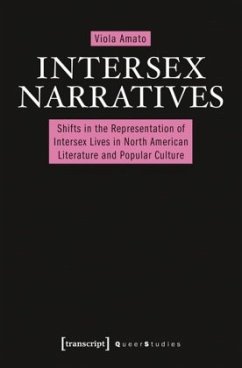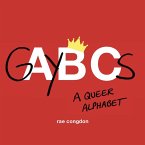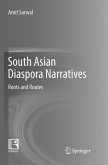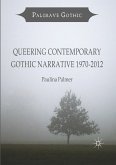This book explores representations of intersex - intersex persons, intersex communities, and intersex as a cultural concept and knowledge category - in contemporary North American literature and popular culture. The study turns its attention to the significant paradigm shift in the narratives on intersex that occurred within early 1990s intersex activism in response to biopolitical regulations of intersex bodies.Focusing on the emergence of recent autobiographical stories and cultural productions like novels and TV series centering around intersex, Viola Amato provides a first systematic analysis of an activism-triggered resignification of intersex.
»Eine wichtige Archiv-Studie, deren Aufarbeitungscharakter den Ansprüchen des Gegenstandes an eine sensible Analyse [...] gerecht wird.« Lena Eckert, IASLonline, 29.11.2017 »Interesting and reliable.« Florian G. Mildenberger, Sexuality & Culture, 21 (2017) »A groundbreaking study that clearly closes a research gap in American Studies. It is particularly Amatos rootedness in poststructuralist theories of sex and gender and her awareness of the indebtedness of academic discourse to the largely underrepresented history of the intersexmovement that lets the better-known intersexnarratives appear in a new light and provides a new ground for nuanced future readings of intersex narratives.« Simon Dickel, Amerikastudien, 62/1 (2017)







